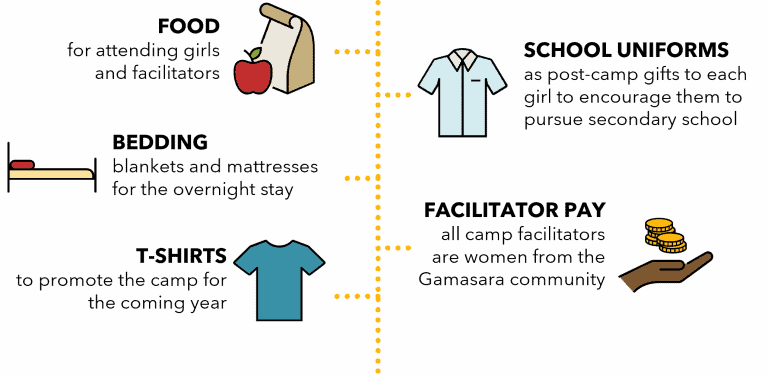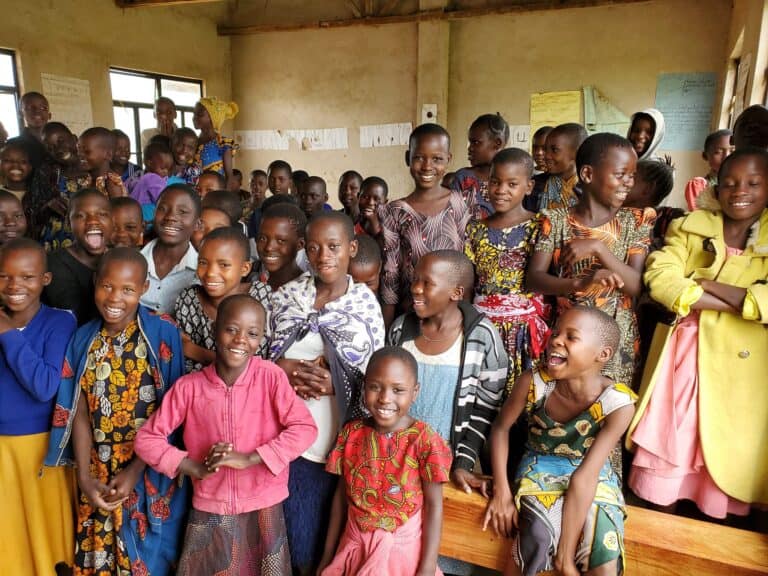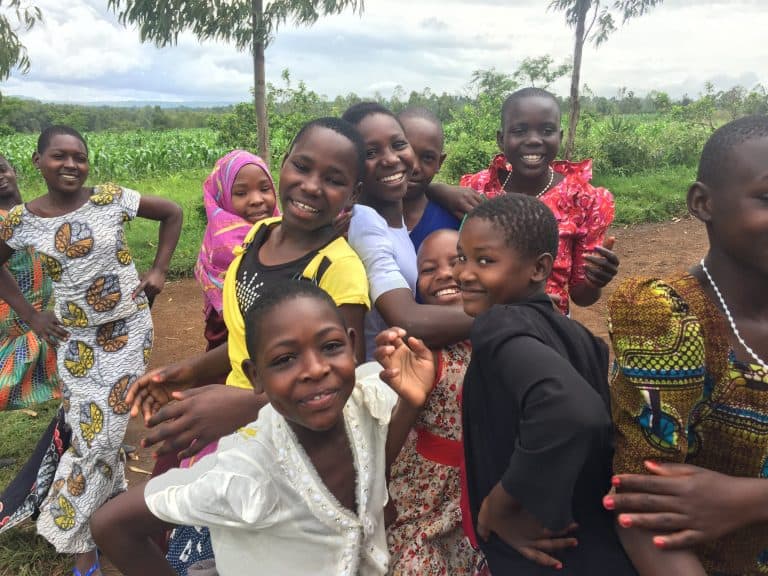Emmanuel Center Girls' Camp
Educational summer camp providing a safe and empowering learning experience and safe alternative to female genital mutilation.
Each year, the Emmanuel Center provides an educational camp for girls during the season when female genital mutilation (FGM) is traditionally performed in the Kuria community. Safely away from the cutting ceremony, girls at the camp are taught about their options and opportunities beyond FGM and early marriage.
Help us fund the annual girls camp and support the Emmanuel Center to empower girls to protect their bodies and futures.
About the project
The Kuria are one of a few tribes in Tanzania who still practice Female Genital Mutilation (FGM). Once this ritual is performed on a girl, she is considered “ready for marriage” and will command a higher bride price. At this point she often drops out of school to marry. Each two years, Kuria tribal elders stage a week-long ceremony to perform FGM on girls in the Gamasara community.
The Emmanuel Center girls’ camp is scheduled throughout that week, providing a safe and educational alternative for girls aged 9–13.
The camp is hosted at King Emmanuel Primary School and the camp facilitators are women from the community. The camp involves classes and creative activities like crafts, plays and songs, with the aim of teaching girls about their own potential, opportunities and rights as women.
In 2018, the first camp was run with 83 girls. Since then, the Center has run a camp almost every year (including non-ceremony years), with increasing numbers of girls attending. It is still a challenge to get community support, but we committed to fund the 2022 camp to maintain this safe alternative, combat stigma against girls who chose not to undergo FGM, and show girls and their families there is another future for Kuria women.
Where your donations went
The 2022 camp ran in December this year with 95 girls. Here’s where our donation went:

About the Emmanuel Center for Women and Children
While this project is complete, the Emmanuel Center continues to do incredible work on the ground in Gamasara.
Eric and Elizabeth Soard were working in the Gamasara community and were invited to a funeral service for a twelve-year old boy named Emmanuel who had died of malaria. They asked how it had happened, and heard this story.
Emmanuel’s father had three wives, but only treated his first wife and her children as family to be cared for. His mother, the second wife, had no power and no resources of her own, so tried in vain to convince the father to pay for malaria medicine. Emmanuel had died for a lack of medicine costing approximately $3.
Eric and Liz set up the Emmanuel Center to provide community education and development, through the ministry of the United Methodist Church. The Center offers a safe place to empower women to build self-advocacy particularly in the areas of income, health, and basic rights.







